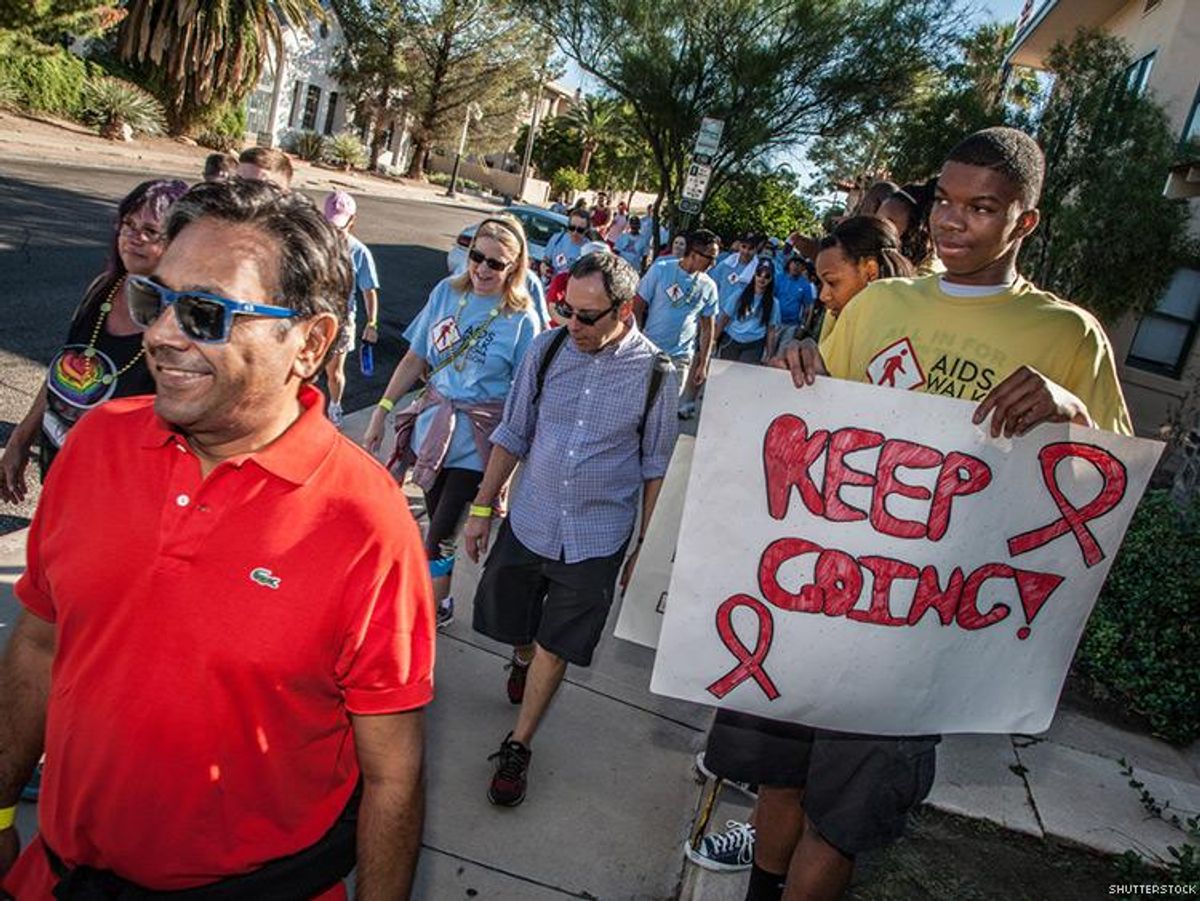Activism
How Much Do We Need To Do?

A response to an open letter from an HIV researcher that urged AIDS activists to do more.
September 22 2017 3:43 PM EST
By continuing to use our site, you agree to our Privacy Policy and Terms of Use.

A response to an open letter from an HIV researcher that urged AIDS activists to do more.
Dear Dr. Wohl,
As an AIDS activist since 1984, I am responding to your call on us to be as loud as we were in the 1980s and ’90s. Did you, perhaps, notice the point at which AIDS activism began to be less visible and dynamic? It was shortly after the advent of antiretrovirals (ARVs). Life-saving drugs quickly became available to most of the white, economically stable people in the U.S. Once people with privilege had medication, things got a lot quieter. Fewer people made noise.
As we all know, adequate medical care did not reach the majority of people who needed it then and still has not, especially in heavily impacted countries. But poor people and heavily stigmatized people are not the ones with large amounts of time and resources to mobilize and act up when they aren’t getting what they need. Without financial stability, we spend a majority of our time on work that pays rent and feeds our families, while fitting in as much activism around the edges as we can. Not surprisingly, we are not as visible as we were when our movement included a lot of affluent people with more time to organize actions and money to get to conferences.
I work as an independent consultant because I have found that making strong activist statement (in person and in print) has a tendency to get me fired by employers who can’t afford to have their staff pissing off their funders. I wanted very much to go to Paris for IAS 2017 and to Melbourne and to a host of other recent conferences. I always apply for scholarships to these, usually a media scholarship because I have an International Press Pass. Increasingly, however, scholarship support is going to people from lower-income countries, which is as it should be. But this precludes my participation because I don’t have an employer to support travel costs. This is happening to lots of us. The activist silence that you noted at those meetings isn’t primarily due to fear, intimidation or disinterest. It is simply that, unlike you, we don’t have a well-funded university paying the way.
This is the biggest difference between activists and other sectors of the HIV response (researchers, policy-makers, service providers, etc.). No one pays us to be activists. A very small cadre of people (most of them unbelievably smart and dedicated people) work for organizations that pay them to mobilize activism to change public policy and revise funding priorities. The rest of us do this work for free because we believe in it deeply. Unfortunately, our dedication does not pay the bills at home, cover the cost of getting to important venues or the take care of the fines we incur when we do civil disobedience to make urgently important points.
With TrumpCare on the Congressional agenda, HIV activists this weekend will cram themselves into tight car pools and sleep on church floors so that they can come to Washington, DC, to protest this deadly legislation. When this first came up last in July, well over 100 people (mostly HIV and disability rights activists) were arrested for committing civil disobedience in the halls of Congress. They spent many hours in jail before being allowed to pay their fines, cram back into their car pools and drive home. These are not people whose activism is muted by their lack of courage and dedication. It is just harder to do when you have to earn a living, as well.
You remind us to bite “the hand that feeds you to question motives and demand action.” In case you haven’t noticed, few jobs are available in what we refer to as “AIDS Inc.” If you are suggesting that people who work in HIV/AIDS-focused organizations should undertake more visible activism, that is a separate discussion.
To summarize, I encourage you to envision the population of HIV/AIDS activists prior to 1996, subtract about 80 percent from that total (desperate affluent people, mainly white men, living with HIV and their families and friends), and then consider the number that remains. There are still lots of us and our numbers continue to grow, especially in communities of color. But we are necessarily working more at the local level, with far fewer resources and mostly without the luxury of available time because we have to hold down day jobs. Take a look at how much you spent in total to attend the Paris conference last summer. Then please explain to me how I was supposed to be there, “decrying the deadly slow pace of progress.” Because I would have loved to have the opportunity!